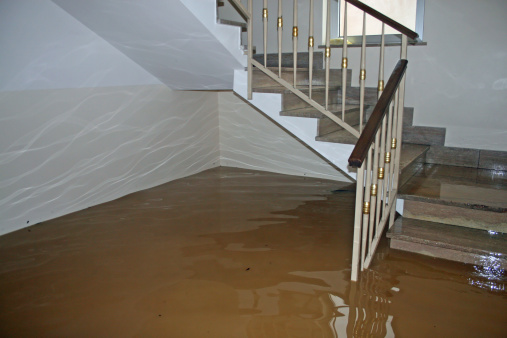Unless your house is on stilts, it can fall victim to basement flooding. Whether from heavy rain, melting snow, groundwater infiltration, or any other cause, water can find its way into your home. Floods are distressing and expensive. They can reduce property values and cause over $1.5 billion in damages across Canada every year. Every homeowner will benefit from taking preventative measures to stop flooding before it occurs. A little legwork now can save you significant headaches in the future.
Know the Culprits

A sewage backup occurs when something causes wastewater to go backward through the sanitation system and into your home. Obstructions in the line or the sewers being overwhelmed can force sewer water to leak up through floor drains, toilets, sinks, showers, laundry machines, and other appliances in your basement.
Be Proactive
The good news is that there are a lot of preventative measures available that can both better protect your basement from flooding and also minimize any damage you suffer should a flood occur.
- Install a sump pump. If you already have one, make sure it gets regular maintenance and testing, especially ahead of heavy weather.
- Install backflow valves for drains and other sewer connections.
- Find and seal any cracks in the walls, foundation or window wells.
- Keep eavestroughs and downspouts cleared of any accumulated debris.
- Keep roadside grates, storm drains, and swales (shallow ditches between properties) clear.
- To prevent inadvertently creating a blockage, don’t flush objects other than body waste and toilet paper in the toilet. In particular, don’t flush oils, grease, or fats.
- Take care of any tree roots that are growing close to the waterlines. The roots can grow through minor cracks and create ruptures.
- Store important documents and valuables in watertight containers or remove them entirely from the basement.
- Elevate furnaces, water heaters, and any electrical equipment in your basement to keep them safe from flood water.
Most of these tips can be carried out over a weekend or less. Compare that to the days and weeks that would be spent recovering from a flooded basement, dealing with the insurance claims process, and trying to salvage your property, and it is easy to see how prevention is the best cure where flooding is concerned.
Flood Services Canada is a leader in flood remediation along with mold, sewage backup cleanup, and fire and smoke damage cleanup. Our rapid response teams can quickly get to work to both prevent and mitigate flood and leak damage and aid in the restoration process. More information on our water damage restoration techniques can be found here.
